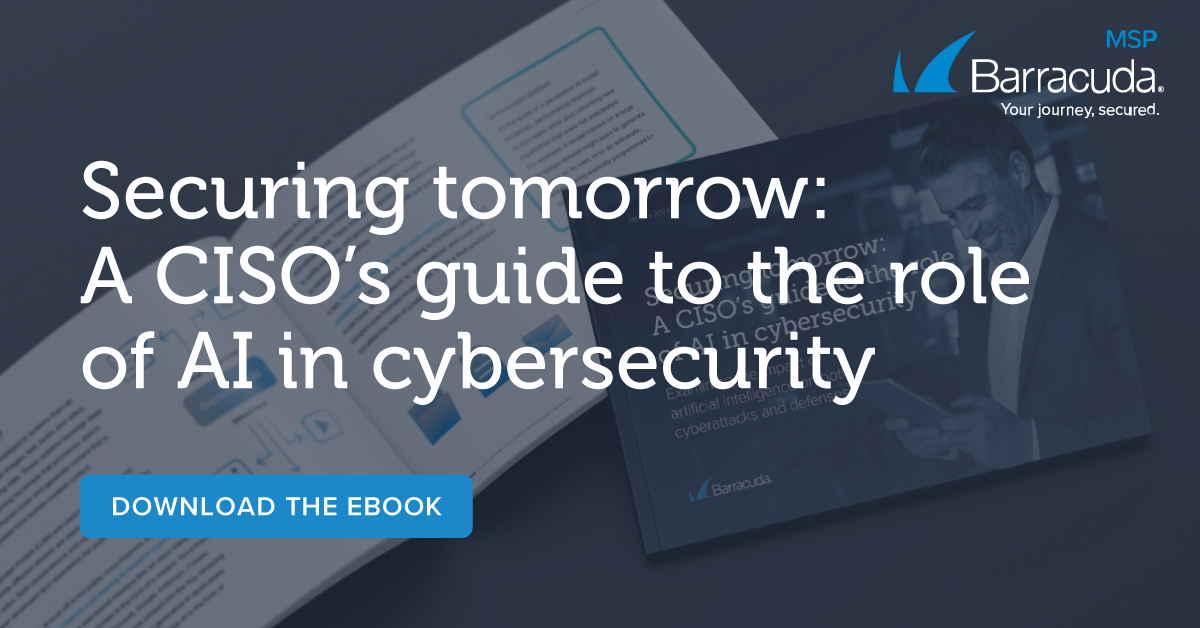
Artificial intelligence (AI) is following a standard hype curve. AI started as something that few people really knew about. However, it exploded into public consciousness as large companies like Microsoft, AWS, and Google embedded AI services into their cloud offerings. Web browsers made previously techie-only features, like ChatGPT, accessible to everyone. For a while, everyone was AI-giddy: AI was going to completely change everything overnight, and mainly for the better. This peak of expectation didn’t last long, however—worries and objections quickly overtook it as users realized that AI is still a very early-stage technology with many problems.
This is pushing buyers and users down into the valley of disillusionment – from where the long, slow climb up the slope of enlightenment will begin to happen, taking us to a place where AI perceptions and really meet successfully.
Addressing common AI concerns for MSPs
For managed service providers (MSPs), this standard picture of how a technology is viewed presents its own issues. Even MSPs that haven’t embraced AI directly will likely integrate AI into their platform or have customers use it alongside third-party AI services.
As such, MSPs need to be able to respond rapidly and effectively to the negative perceptions buyers may have around AI. These will probably gravitate into one of the following areas:
- AI output being wrong. Yes – this happens, and it happens far too often. Dealing with this is a matter of education: currently, no one should be accepting AI output as being totally accurate. Humans still need to provide oversight. Generative AI creates output for others to see or read. A person with the relevant skills must check it for accuracy. Regardless, AI should still be a time saver here. It takes the main heavy lifting of creating a well-rounded and readable piece of collateral out of the hands of the human.
- AI is taking away jobs. A two-edged sword – employers may see this as a benefit, but users will undoubtedly see it as a threat. As with many past workflow improvements, the main benefit of AI here is not in removing value-added work from employees. Instead, it focuses on taking away the tedious grunt work from them. MSPs must focus on how AI can empower a workforce to do what the employer is looking for – adding value to the bottom line.
- AI and security present another double-edged sword. AI can provide much stronger security capabilities. However, malicious actors can also use it as a more effective weapon against an organization’s defenses. Organizations that don’t use AI as part of their security defenses are much more likely to get hacked by those using AI as a malicious tool. MSPs must promote this aspect of AI as a stronger line of defense, especially in how they leverage AI at the platform level.
- AI longevity. AI is still in its early stages, and users realize its functionality may change quickly. This raises concerns about investing in services that require constant adaptation. MSPs must ensure AI services are transparent and inform customers of any changes that could impact them. They should guide organizations in adopting AI solutions tactically and support them as changes occur, ensuring they can manage updates within their environment.
- Better AI solutions are coming along. New AI services are emerging daily, with some coming from well-known vendors and others from unknown startups. This presents two key challenges: first, determining whether a new AI service is better than the current one, and second, figuring out how to replace the existing solution. To address this, MSPs should aim for a plug-and-play approach when implementing AI. Additionally, the solution may not meet the customer’s needs if a new vendor acquires a startup. They must work with customers to find the best fit. This may mean adapting to a better solution rather than adjusting to a larger platform change.
The growing role of AI in MSP services
Overall, AI is becoming increasingly widespread. It is now incumbent on the MSP to move toward being more consultative with customers. A large degree of AI will integrate deeply into an MSP’s platform and service offerings. Other areas of AI will come from external providers. It is here where the MSP has to tread most carefully. While in-platform/in-service AI is purely under the control of the MSP, third-party AI can, and will, change as AI matures.
MSPs must ensure that customers and prospects alike can trust that the MSP has their best interests at heart and will work with them to minimise AI bumps in the road.
Photo: fizkes / Shutterstock

